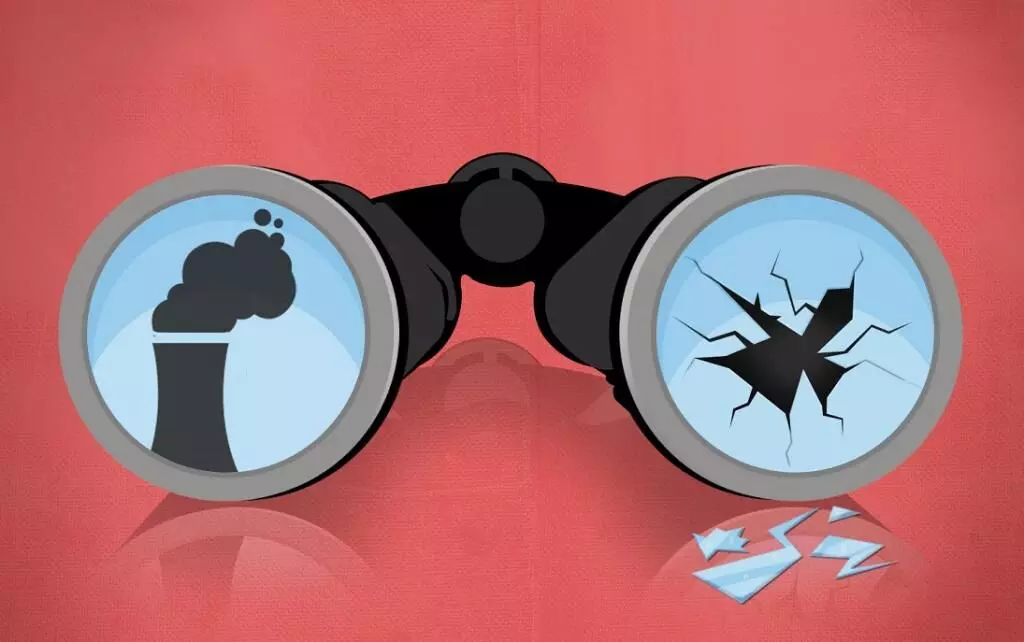Selective exclusion
Why should countries of the western world, which have already appropriated the giant share of the carbon budget, be given a free pass on the continued use of natural gas?

Why is dirty coal singled out when it comes to climate change? Why not natural gas, which is also a fossil fuel and emits gases that contribute to global warming? I know, I am asking an inconvenient question. But bear with me. I do so, knowing that we need to drastically cut greenhouse gas emissions, and fast. But we need clarity on what we are doing, and why.
As an environmentalist based in Delhi, I am clear that burning coal is bad for our health; it generates emissions that we must not breathe. It is bad, also because it is burnt in thousands of small- and medium-sized industrial boilers, where pollution abatement is either expensive or impossible to regulate.
Furthermore, thermal power plants that use coal to generate energy add to local pollution because many units are old and cannot be refurbished and refitted with technologies to control emissions of particulate matter (PM), sulphur dioxide (SO2) or nitrogen oxides (NOx).
It is for this reason, and as part of the effort to combat local air pollution, that my city of Delhi has banned the use of coal; it has shut down the last of its aged coal-based thermal plants. Now, it has stopped the use of coal within a radius of 100 km around the city.
All industries using coal to fuel their furnaces have been told to move to natural gas or other clean fuels or will be forced to shut down. The ultimate objective is to increase the use of electricity as energy by industries and vehicles, which will come from clean sources, ideally renewables.
But in the interim, the solution is to move to natural gas, which is cleaner than coal when it comes to local air toxins. The problem is that the price of natural gas has shot up—partly because of the war in Ukraine and the need of Europe for this energy source. Virtually every gas tanker is now headed to Europe and this is impinging on India’s clean gas transition.
So, I am not an apologist for coal. But I am asking this “why-coal-and-not-gas” question because the science of pollution for local and global is not the same. Coal emits carbon dioxide (CO2).
Natural gas emits half of what coal emits in terms of CO2 as well as methane. These are not local pollutants, but add to warming because of their long-life in the atmosphere.
The technology pathway for these pollutants is twofold: One, is to reduce the use of coal and gas by increasing efficiency or by switching to renewables. Two, is to continue to use the fuel but capture the CO2 and then store it underground or utilise it (using carbon capture and storage or CCS and carbon capture, utilisation and storage or CCSU). In the case of natural gas, methane control means detecting leakages and preventing the gas from escaping into the atmosphere.
I am explaining this to say that we need to understand the difference in local and global pollution strategies and not mix up the two. Coal is bad, and so is natural gas, when it comes to climate change. Both require strategies for switch, phase out and abatement.
Then why is it that the western world, which has till date built its economy on dirty coal, is now wedded to gas as its dream fuel? The EU has baptised it as “green fuel”. The oil and gas companies are drilling more gas, terming it as the necessary energy source.
In fact, it is now argued that the question is not the continued dependence on natural gas but the need for abatement of emissions. It is even said, within energy circles, that green hydrogen—manufactured using renewable or other green fuel—is not necessary for the green transition.
Blue hydrogen, made from natural gas, is also green if the emissions are abated and CO2 captured. The emphasis is on abatement and not on the phase out of fossil fuel, that is natural gas. So, I ask again, why not discuss abatement in the case of coal?
A recent paper published in Nature Climate by Greg Muttitt and others from the International Institute of Sustainable Development and University College, London, discusses how the Intergovernmental Panel on Climate Change (IPCC) underestimates the need to cut down on gas and oil—gas usage needs to only fall down by 14 per cent by 2030, as compared to the complete and unrealistic phase out of coal, which it says must happen in the coming 10 years to stay below 1.5°C.
They conclude that the 1.5°C pathway needs drastic emission reductions of coal, and of oil and gas; and that this underestimation puts a huge burden on coal-dependent countries of the South. In fact, they calculate that the speed of transition that is required from the developing world is 2x more than any country has done till date.
The question also is why should countries of the western world, which have already appropriated the giant share of the carbon budget—way beyond any definition of fair share—be given a free pass on the continued use of natural gas? I ask these questions, not to deny the need for a transition, but to provoke replies, which I hope will help us build a future that is both shared and clean. DTE
The writer is the Director-General of CSE and editor of DownToEarth. Views expressed are personal



